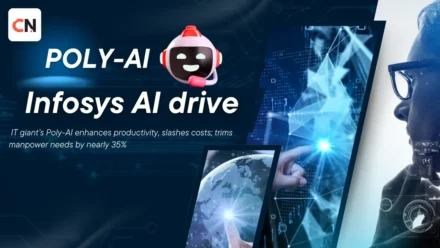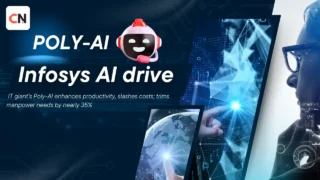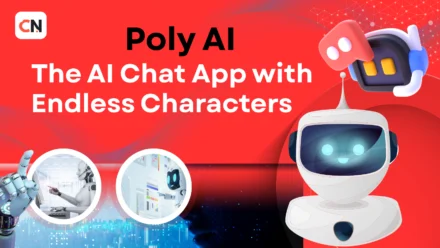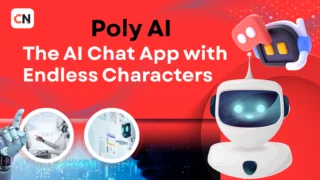In today’s digital-first world, customer service is no longer just a support function — it has become the core of brand experience. Customers expect answers that are instant, accurate, and human-like, whether they are booking a service, resolving an issue, or simply asking a question. But traditional call centers often fall short. Long wait times, high operational costs, and the increasing burden on human agents have turned customer service into a challenge for most companies.
This is where Conversational AI and Voice Technology are stepping in as game changers. Instead of being stuck in long queues, customers can now speak naturally with AI-powered assistants that respond in real time. These assistants don’t just handle basic queries — they are designed to understand intent, provide personalized answers, and work around the clock.
PolyAI is one of the leaders driving this change. By creating voice-based AI assistants that sound remarkably human, PolyAI is reshaping how businesses deliver customer support. Their approach reduces waiting times, frees up human agents for complex cases, and ensures that every customer gets a smooth and consistent experience.
What is PolyAI?
PolyAI is a UK-based technology company, founded in 2017, with its headquarters in London. The company has quickly established itself as a pioneer in the field of Conversational AI, focusing primarily on voice-based AI assistants that can communicate with customers in a natural, human-like manner.
At its core, PolyAI’s mission is simple yet powerful:
To build voice assistants that can converse naturally with people, just like a human agent, while reducing the burden on traditional call centers.
Unlike generic chatbots that often sound robotic and scripted, PolyAI’s technology is designed to understand intent, context, and nuances of human speech. This makes their assistants capable of handling real-world conversations — from simple queries to more complex interactions — with ease and efficiency.
By blending advanced speech recognition, natural language understanding (NLU), and machine learning, PolyAI is helping businesses across industries provide faster, smarter, and more scalable customer support.
How Does PolyAI Work?
PolyAI’s platform is built on the foundation of modern Natural Language Understanding (NLU) and advanced speech recognition technology. This combination allows the system to accurately interpret customer queries in natural language and respond with a human-like voice that feels authentic and engaging.
One of the standout features of PolyAI is its multi-language support. A single platform can seamlessly handle conversations in multiple languages, making it an ideal solution for global businesses serving diverse customer bases.
In terms of integration, PolyAI is designed with flexibility in mind. It can be easily integrated into existing call center infrastructures such as Amazon Connect, Genesys, Cisco, and many others. This means companies don’t have to overhaul their systems — they can simply add PolyAI to enhance their customer experience.
Another major advantage is the speed of deployment. Unlike traditional solutions that may take months to roll out, PolyAI can design, build, and deploy a brand-specific voice assistant within just six weeks. This rapid implementation gives businesses a faster path to improving customer service while reducing operational load.
In short, PolyAI combines cutting-edge AI, multi-language capability, and seamless integration to deliver scalable, natural, and brand-ready voice assistants that transform customer interactions.
Key Features of PolyAI
PolyAI offers a range of powerful features that make it stand out in the conversational AI landscape:
- 24/7 Availability – Customers can access support at any time of the day or night, without waiting for human agents to be available.
- Human-like Voice – The assistants sound remarkably natural, creating a conversational experience that feels just like speaking to a real person.
- Customization – Businesses can tailor the assistant’s voice, tone, and personality to align perfectly with their brand identity.
- Data Security – PolyAI follows strict global standards such as ISO 27001, SOC 2, and GDPR, ensuring that customer data is always secure and compliant.
- Fast Deployment – Unlike traditional solutions that take months, PolyAI assistants can be designed and deployed within a matter of weeks.
These features not only make PolyAI efficient but also ensure that businesses can deliver a personalized, secure, and scalable customer experience.
Benefits of PolyAI
By adopting PolyAI’s voice-based assistants, businesses can unlock several practical advantages:
- Reduced Call Center Costs – Automating routine queries lowers operational expenses significantly.
- Higher Agent Productivity – Human agents are freed from repetitive tasks, allowing them to focus on complex, high-value interactions.
- Improved Customer Experience – No more long wait times; customers get instant, accurate responses around the clock.
- Seamless Human Handoff – When needed, complex calls can be smoothly transferred to a live agent without disrupting the conversation flow.
Together, these benefits make customer service more efficient, scalable, and customer-centric.
Use Cases of PolyAI
PolyAI’s technology can be applied across multiple industries and scenarios, such as:
- Banking & Financial Services – Handling account inquiries, fraud detection calls, and transaction support.
- Travel & Hospitality – Assisting customers with booking, reservations, and itinerary changes.
- Retail & E-commerce – Managing order tracking, returns, and product queries.
- Telecommunications – Supporting customers with billing, plan upgrades, and technical troubleshooting.
- Healthcare – Scheduling appointments, providing reminders, and answering common patient queries.
These use cases show how PolyAI is not limited to one industry — it’s a versatile solution that adapts to different business needs.
Case Study: Hopper Travel App
One of the most well-known examples of PolyAI in action is the Hopper Travel App, a popular platform for booking flights, hotels, and vacation packages.
Hopper integrated PolyAI’s voice assistant into its customer service operations to reduce the growing burden on its call centers. The results were impressive:
- 15% of all calls were fully handled by AI, without the need for human intervention.
- Customers gained access to instant, 24/7 support, which greatly improved satisfaction.
- Human agents were able to focus solely on complex cases, boosting efficiency and reducing burnout.
This case study clearly demonstrates how PolyAI can transform customer service by striking the right balance between automation and human support. It not only improves customer experience but also creates tangible operational savings for businesses.
Growth and Funding
PolyAI has been experiencing rapid growth since its inception. The company’s innovative approach to voice-based AI assistants has attracted strong attention not only from businesses but also from global investors.
In 2024, PolyAI successfully raised $50 million in its Series C funding round, bringing its total funding to approximately $120 million to date. This consistent investment momentum highlights the confidence investors have in PolyAI’s technology and long-term potential.
Such funding is enabling PolyAI to accelerate product development, expand into new markets, and scale its operations globally, reinforcing its position as one of the leaders in conversational AI.
Challenges and Limitations
While PolyAI’s technology is highly advanced, there are still some challenges and limitations that businesses need to consider:
- Initial Training and Setup Costs – Developing and customizing a brand-specific voice assistant requires upfront investment in training and deployment.
- Complex Queries Still Need Humans – Although AI can handle a large percentage of routine interactions, very complex or sensitive queries still require human agents to step in.
- Data Privacy Concerns – With increasing awareness around digital security, some customers remain cautious about sharing personal information with AI systems, even when strict compliance standards are in place.
These challenges highlight that while PolyAI is a powerful solution, it works best as a complement to human agents rather than a complete replacement.
Future Outlook
The future of customer service is expected to be deeply shaped by Conversational AI and Voice Technology. As businesses continue to look for scalable and efficient solutions, the demand for AI-driven voice assistants will only increase.
PolyAI is already working on advanced features such as multilingual capabilities and Emotion AI, which will enable its assistants to not only understand different languages but also detect and respond to customer emotions in real time. This will make interactions even more natural, empathetic, and human-like.
Looking ahead, the future of contact center automation is likely to rely heavily on Voice AI. Companies that adopt these technologies early will gain a competitive edge by offering faster, smarter, and more personalized customer experiences.
Conclusion
PolyAI has emerged as a platform that is truly redefining the future of customer service. By combining conversational AI with human-like voice technology, it not only helps businesses reduce costs but also delivers a fast, smart, and natural customer experience.
As Voice AI continues to expand in the coming years, PolyAI is well-positioned to be at the forefront of this transformation. Its ability to blend efficiency with empathy makes it one of the leading companies driving the next revolution in customer support.
FAQs
What is PolyAI?
PolyAI is a tech company that creates AI-powered voice assistants for customer service, enabling automated, human-like conversations.
How do PolyAI voice assistants help businesses?
They reduce call center workload, improve response time, and provide consistent customer support 24/7.
Can PolyAI handle multiple languages?
Yes, PolyAI supports multiple languages, making it suitable for global businesses.
Is it easy to integrate PolyAI into existing systems?
Absolutely. PolyAI can integrate with popular call center platforms like Amazon Connect, Genesys, and Cisco.
What industries use PolyAI?
Banking, travel, healthcare, retail, e-commerce, and telecom are common sectors.
How secure is customer data with PolyAI?
PolyAI complies with data security standards like ISO 27001, SOC 2, and GDPR to ensure privacy and protection.
What are the limitations of PolyAI?
While effective for routine queries, highly complex issues may still need human intervention. Initial setup and training may also require investment.
What makes PolyAI different from other AI assistants?
Its natural, human-like voice, fast deployment, multilingual support, and brand customization set it apart from typical chatbots or voice AI.
Is PolyAI suitable for small businesses?
Yes, especially those with frequent customer interactions, though cost and setup requirements should be considered.
What’s next for PolyAI?
Expansion into emotion-aware AI and deeper automation for contact centers is expected in the near future.








Leave a Comment